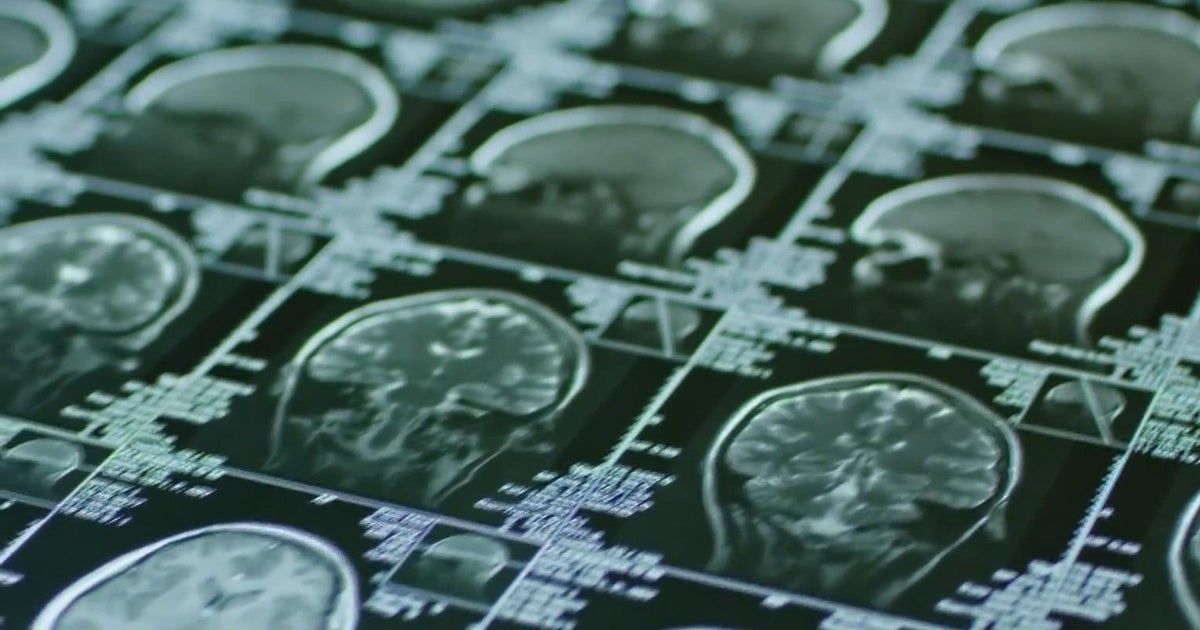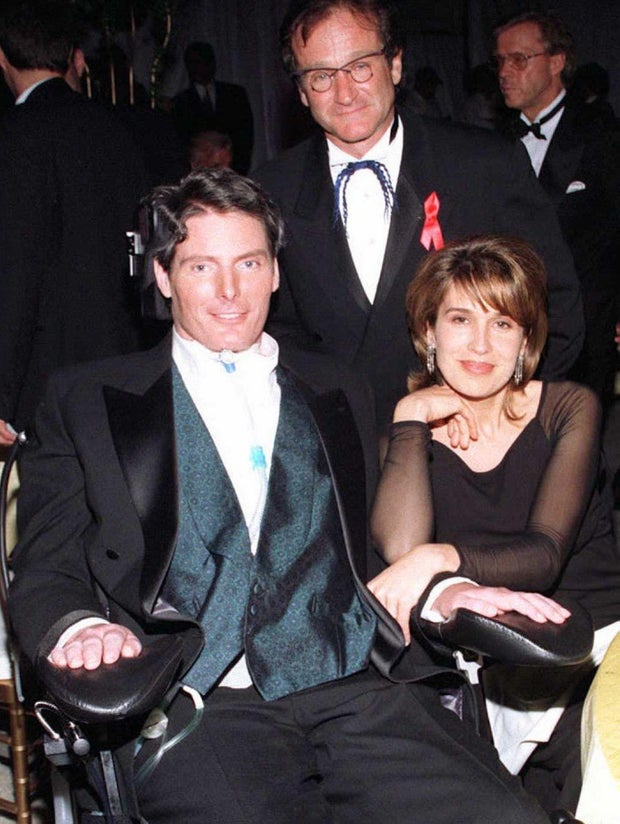CBS News
Research suggests COVID-19 affects brain age and IQ score

Ziyad Al-Aly is chief of research and development at VA St. Louis Health Care System and a clinical epidemiologist at Washington University in St. Louis.
From the very early days of the pandemic, brain fog emerged as a significant health condition that many experience after COVID-19.
Brain fog is a colloquial term that describes a state of mental sluggishness or lack of clarity and haziness that makes it difficult to concentrate, remember things and think clearly.
Fast-forward four years and there is now abundant evidence that being infected with SARS-CoV-2 – the virus that causes COVID-19 – can affect brain health in many ways.
In addition to brain fog, COVID-19 can lead to an array of problems, including headaches, seizure disorders, strokes, sleep problems, and tingling and paralysis of the nerves, as well as several mental health disorders.
A large and growing body of evidence amassed throughout the pandemic details the many ways that COVID-19 leaves an indelible mark on the brain. But the specific pathways by which the virus does so are still being elucidated, and curative treatments are nonexistent.
Now, two new studies published in the New England Journal of Medicine shed further light on the profound toll of COVID-19 on cognitive health.
I am a physician scientist, and I have been devoted to studying long COVID since early patient reports about this condition – even before the term “long COVID” was coined. I have testified before the U.S. Senate as an expert witness on long COVID and have published extensively on this topic.
How COVID-19 leaves its mark on the brain
Here are some of the most important studies to date documenting how COVID-19 affects brain health:
-
Large epidemiological analyses showed that people who had COVID-19 were at an increased risk of cognitive deficits, such as memory problems.
-
Imaging studies done in people before and after their COVID-19 infections show shrinkage of brain volume and altered brain structure after infection.
-
A study of people with mild to moderate COVID-19 showed significant prolonged inflammation of the brain and changes that are commensurate with seven years of brain aging.
-
Severe COVID-19 that requires hospitalization or intensive care may result in cognitive deficits and other brain damage that are equivalent to 20 years of aging.
-
Laboratory experiments in human and mouse brain organoids designed to emulate changes in the human brain showed that SARS-CoV-2 infection triggers the fusion of brain cells. This effectively short-circuits brain electrical activity and compromises function.
-
Autopsy studies of people who had severe COVID-19 but died months later from other causes showed that the virus was still present in brain tissue. This provides evidence that contrary to its name, SARS-CoV-2 is not only a respiratory virus, but it can also enter the brain in some individuals. But whether the persistence of the virus in brain tissue is driving some of the brain problems seen in people who have had COVID-19 is not yet clear.
-
Studies show that even when the virus is mild and exclusively confined to the lungs, it can still provoke inflammation in the brain and impair brain cells’ ability to regenerate.
-
COVID-19 can also disrupt the blood brain barrier, the shield that protects the nervous system – which is the control and command center of our bodies – making it “leaky.” Studies using imaging to assess the brains of people hospitalized with COVID-19 showed disrupted or leaky blood brain barriers in those who experienced brain fog.
-
A large preliminary analysis pooling together data from 11 studies encompassing almost 1 million people with COVID-19 and more than 6 million uninfected individuals showed that COVID-19 increased the risk of development of new-onset dementia in people older than 60 years of age.
Autopsies have revealed devastating damage in the brains of people who died with COVID-19.
Drops in IQ
Most recently, a new study published in the New England Journal of Medicine assessed cognitive abilities such as memory, planning and spatial reasoning in nearly 113,000 people who had previously had COVID-19. The researchers found that those who had been infected had significant deficits in memory and executive task performance.
This decline was evident among those infected in the early phase of the pandemic and those infected when the Delta and Omicron variants were dominant. These findings show that the risk of cognitive decline did not abate as the pandemic virus evolved from the ancestral strain to omicron.
In the same study, those who had mild and resolved COVID-19 showed cognitive decline equivalent to a three-point loss of IQ. In comparison, those with unresolved persistent symptoms, such as people with persistent shortness of breath or fatigue, had a six-point loss in IQ. Those who had been admitted to the intensive care unit for COVID-19 had a nine-point loss in IQ. Reinfection with the virus contributed an additional two-point loss in IQ, as compared with no reinfection.
Generally the average IQ is about 100. An IQ above 130 indicates a highly gifted individual, while an IQ below 70 generally indicates a level of intellectual disability that may require significant societal support.
To put the finding of the New England Journal of Medicine study into perspective, I estimate that a three-point downward shift in IQ would increase the number of U.S. adults with an IQ less than 70 from 4.7 million to 7.5 million – an increase of 2.8 million adults with a level of cognitive impairment that requires significant societal support.
Another study in the same issue of the New England Journal of Medicine involved more than 100,000 Norwegians between March 2020 and April 2023. It documented worse memory function at several time points up to 36 months following a positive SARS-CoV-2 test.
Parsing the implications
Taken together, these studies show that COVID-19 poses a serious risk to brain health, even in mild cases, and the effects are now being revealed at the population level.
A recent analysis of the U.S. Current Population Survey showed that after the start of the COVID-19 pandemic, an additional 1 million working-age Americans reported having “serious difficulty” remembering, concentrating or making decisions than at any time in the preceding 15 years. Most disconcertingly, this was mostly driven by younger adults between the ages of 18 to 44.
Data from the European Union shows a similar trend – in 2022, 15% of people in the EU reported memory and concentration issues.
Looking ahead, it will be critical to identify who is most at risk. A better understanding is also needed of how these trends might affect the educational attainment of children and young adults and the economic productivity of working-age adults. And the extent to which these shifts will influence the epidemiology of dementia and Alzheimer’s disease is also not clear.
The growing body of research now confirms that COVID-19 should be considered a virus with a significant impact on the brain. The implications are far-reaching, from individuals experiencing cognitive struggles to the potential impact on populations and the economy.
Lifting the fog on the true causes behind these cognitive impairments, including brain fog, will require years if not decades of concerted efforts by researchers across the globe. And unfortunately, nearly everyone is a test case in this unprecedented global undertaking.
This article is republished from The Conversation under a Creative Commons license.
CBS News
Saturday Sessions: Marcus King performs “Save Me”

Watch CBS News
Be the first to know
Get browser notifications for breaking news, live events, and exclusive reporting.
CBS News
New documentary explores the private life of “Superman” icon Christopher Reeve

Long before comic book characters dominated movie screens, actor Christopher Reeve made the world believes in superheroes with the 1978 classic “Superman.”
Reeve died in 2004, nearly a decade after an accident re-shaped his life. “Super/Man: The Christopher Reeve Story” is using interviews with family and friends and never-before-seen home videos to explore his real-life heroism.
Reeve started his career on the stage, studying at the prestigious Juilliard School and living with comedian Robin Williams. The pair had a friendship that was “more like a brotherhood,” said Reeve’s son Matthew. Reeve was in awe of Williams’ energy and versatility, Matthew Reeve said, but audiences quickly clued into Reeve’s own star power when he took on the role of the Man of Steel.
Warner Bros. Pictures / Getty Images
To his children, though, he “was just dad,” Matthew Reeve said. The documentary explores how Matthew Reeve and his sister Alexandra Reeve Givens grew up watching their dad take the stage as Superman. “Super/Man” also reveals their heartbreak over their parents’ breakup and the joy they found when Reeve re-married. He tied the knot with Dana Reeve in 1992, and the pair welcomed another child, William Reeve, later that year.
“Dana was sunshine,” Alexandra Reeve Givens recalled. “She just brought joy with her wherever she was and could find it even in the darkest moments.”
Those dark moments came suddenly, when in 1995, a near-fatal horseback riding accident left Reeve paralyzed from the neck down. The documentary allows viewers to see, for the first time, what went on out of the public’s view. Reeve can be heard talking about how he “ruined (his) life and everybody else’s,” but in a touching moment, old friend Robin Williams is seen visiting him in the hospital.
“Robin showed him ‘Hey, you’re still you,'” Alexandra Reeve Givens said. “‘You still have this foundation of friendship and people around you, who adore you. And you’re going to find those fun moments in life again.'”
That support from friends and family re-ignited Reeve’s legacy of activism. He made appearances at the Democratic National Convention and the 68th Academy Awards in 1996, about a year after the accident. Matthew Reeve said watching his father address his industry peers at the Oscars was “one of (his) most proud moments.”
“It was just a production for him to get out of bed every morning, let alone get across the country and go out in public for the first time,” Matthew Reeve said. “It was a big deal. It was a big deal to him, but it was also a big deal to the entire disability community. We stayed up in London till like three in the morning to watch that live. It’s a fond memory.”
Vince Bucci/AFP via Getty Images
Reeve also went on to launch what would become the Christopher and Dana Reeve Foundation, which is dedicated to advancing research into spiral cord injury and help individuals and families impacted by paralysis. It was his dad’s mission to find a cure, Matthew Reeve said, while his stepmother wanted to focus on improving the lives of paralyzed people and their families. The foundation and Reeve’s platform helped bring unprecedented attention and funding to spinal cord injury research.
Reeve even kept acting and realized his lifelong dream of directing with the 1997 HBO movie “In the Gloaming.” Reeve died in 2004 from heart failure at 52.
“There is a huge amount of great actors and actresses out there, where their filmography might be amazing and what they achieve on a cultural level might be amazing, but have they actually achieved anything really as a human that moves the needle for our society?” said filmmaker Ian Bonhote, who made the documentary with Peter Ettedgui. “And Chris has done both things.”
“Super/Man: The Christopher Reeve Story” will open in theaters on Friday, Oct. 11.
CBS News
How England’s most traditional meal is changing

Watch CBS News
Be the first to know
Get browser notifications for breaking news, live events, and exclusive reporting.










